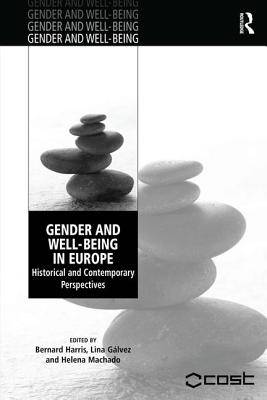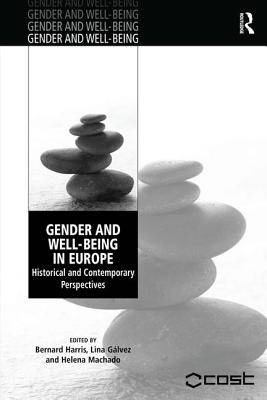
- Afhalen na 1 uur in een winkel met voorraad
- Gratis thuislevering in België vanaf € 30
- Ruim aanbod met 7 miljoen producten
- Afhalen na 1 uur in een winkel met voorraad
- Gratis thuislevering in België vanaf € 30
- Ruim aanbod met 7 miljoen producten
Zoeken
€ 290,45
+ 580 punten
Uitvoering
Omschrijving
This book is the first of four books based on a series of symposia funded by COST, which is an intergovernmental framework for the promotion of European Cooperation in the field of Scientific and Technical Research. It draws on both historical and contemporary European case-studies to offer a sophisticated account of the relationship between gender and well-being. The authors focus on key discussions of the changing conceptions of well-being from early twentieth century calculations of the relationship between income and the cost-of-living, to more recent critiques from feminist writers. Their fascinating answers allow them to significantly challenge the issue with the idea that well-being is not only associated with income or opulence but also relates to more abstract concepts including capabilities, freedom, and agency of different women and men and will be of considerable interest to economic and social historians, sociologists of health, gender, sexuality and economists.
Specificaties
Betrokkenen
- Auteur(s):
- Uitgeverij:
Inhoud
- Aantal bladzijden:
- 298
- Taal:
- Engels
- Reeks:
Eigenschappen
- Productcode (EAN):
- 9780754672647
- Verschijningsdatum:
- 28/06/2009
- Uitvoering:
- Hardcover
- Formaat:
- Genaaid
- Afmetingen:
- 156 mm x 234 mm
- Gewicht:
- 594 g

Alleen bij Standaard Boekhandel
+ 580 punten op je klantenkaart van Standaard Boekhandel
Beoordelingen
We publiceren alleen reviews die voldoen aan de voorwaarden voor reviews. Bekijk onze voorwaarden voor reviews.











